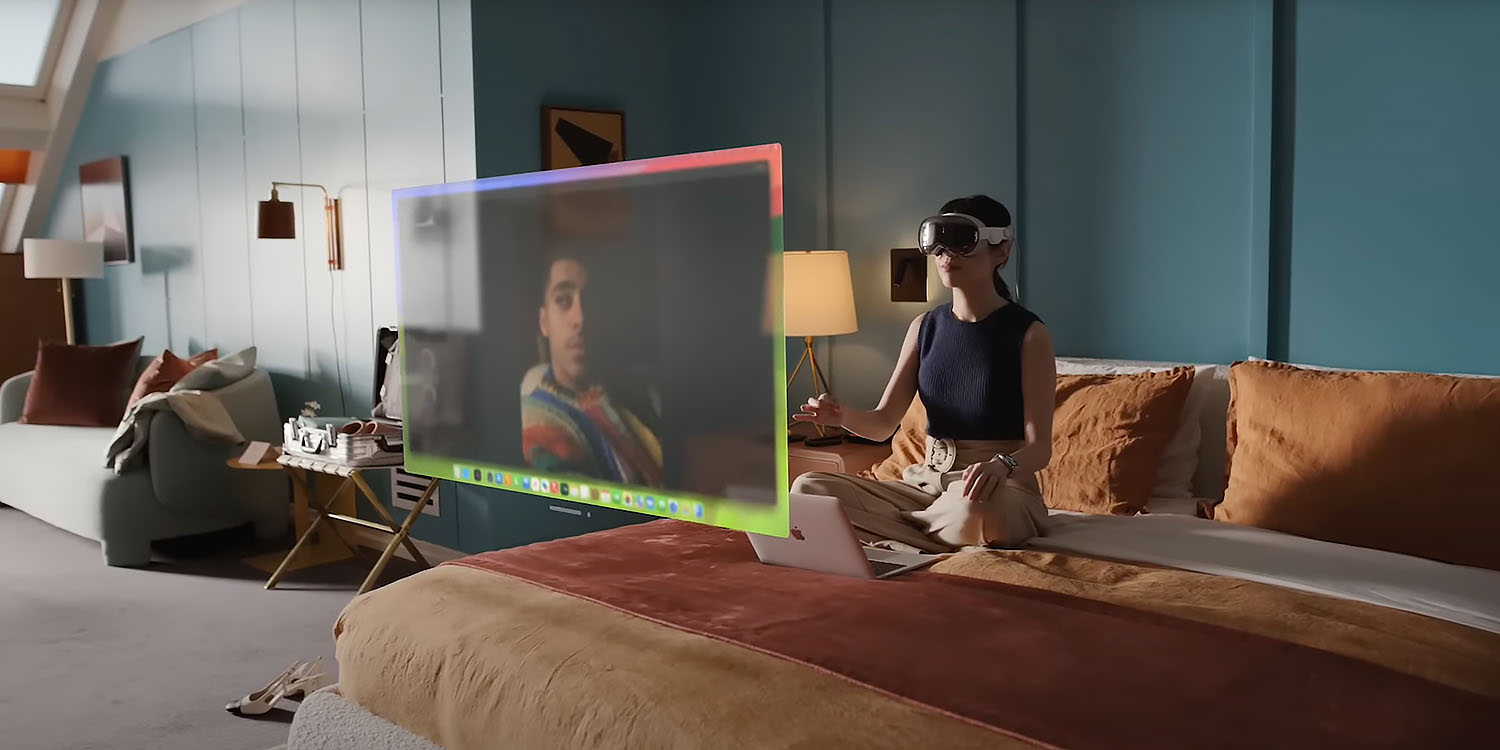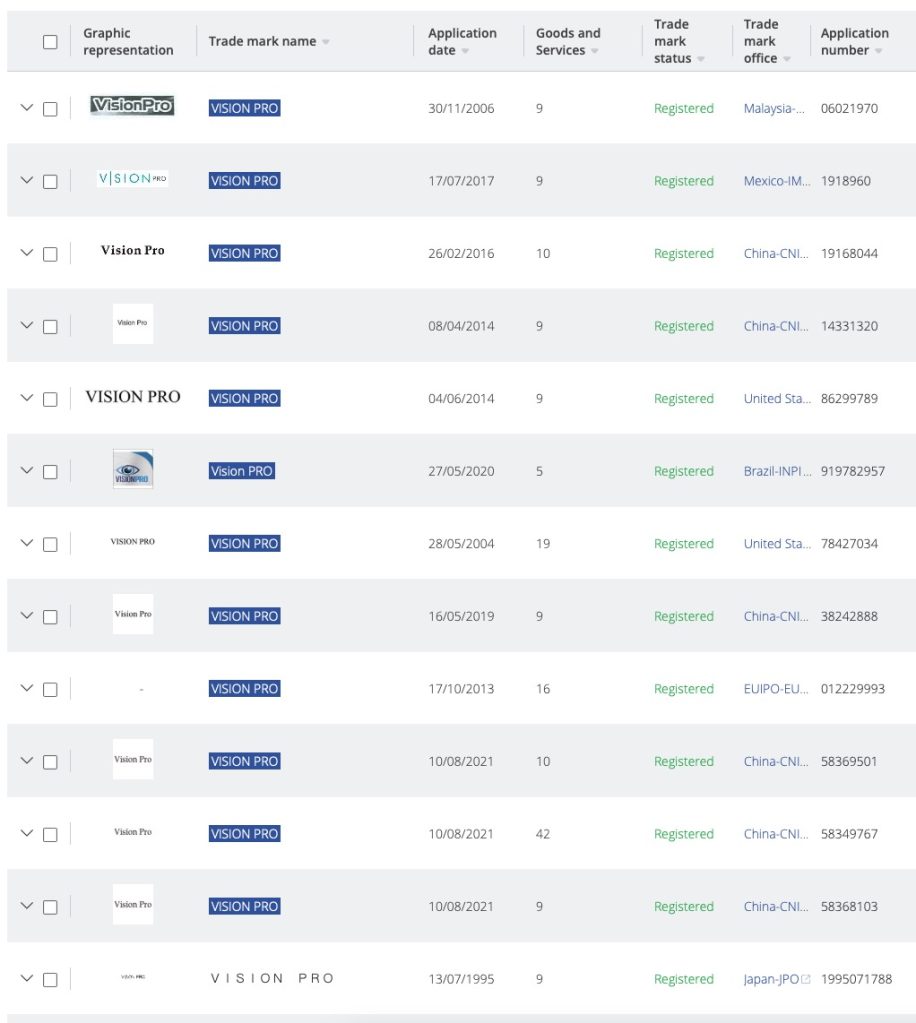
It’s been reported in the past couple of days that there’s a problem with the Vision Pro trademark, with some noting that it’s already been registered in China by Huawei.
There have been breathless claims that this might force Apple to change the name of the device – but those reports are based on a very incomplete understanding of the situation …
Yes, it’s true that Huawei has registered Vision Pro as a trademark in China. But so have many other companies in many other countries.
A trademark database search reveals hundreds of applications to register Vision Pro. Some have been granted and are current, some were granted and have since expired, others are still pending.
But even it we filter by successful Vision Pro trademark registrations which are still currently active, there are at least 58 of them. (“At least” because the database I used doesn’t cover all countries.) Here are just a few examples:

This isn’t at all surprising. When you apply to register a trademark, you must specify the products and services for which you intend to use it. For example, you might register “Acme” as a trademark for crate-based roadrunner traps, while another company might register it for explosives. Both trademarks will be valid, and defendable, but only for their respective product categories.
If you apply to register a trademark for every product category from aardvark burgers to zyzzyva smoothies (a tropical beetle, I thought everyone knew that) – as Apple is inclined to do – then competing applications will be considered on the basis of what’s known as the “distinctiveness.”
This is an intellectual property term we can think of as “product relevance.” Let’s say you and I both apply for the trademark Zyzzyva International in the Insects category – but you sell live tropical beetles, and I sell headphones. All other things being equal, you will win the trademark in that category because yours is the more distinctive claim.
This even applies to Apple’s trademark for, well, Apple. The company’s claim to use it for computing hardware, software, and services is highly distinctive, hence nobody else stands a chance of registering it in those categories. But if I set up a specialized grocery store selling only Apples, then I might have a better distinctiveness claim in the Fresh Fruits category – even if Apple’s lawyers would make it way too expensive to attempt in the real world.
There is one Vision Pro trademark owner which might seem more problematic for Apple: Cognex. The company not only specialises in hi-tech 2D and 3D vision products, but it holds the oldest US claim to the trademark. Some intellectual property professionals are speculating that this may point to Cognex being an Apple supplier for Vision Pro, and hence a deal having been struck over the use of the trademark.
So, yes, dozens of other companies have successfully trademarked Vision Pro in various categories; but no, this doesn’t mean Apple is going to have to change the name of its spatial computer – in China, or anywhere else.
FTC: We use income earning auto affiliate links. More.




Comments